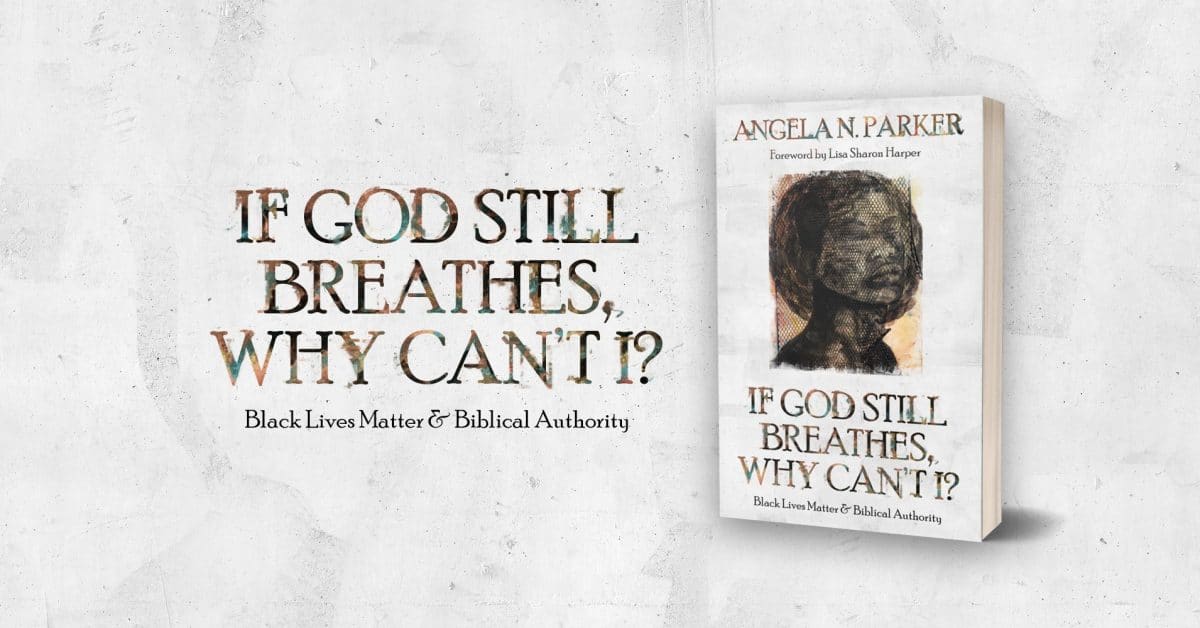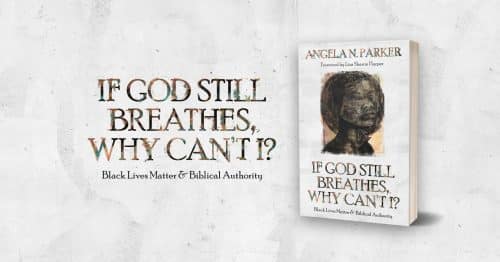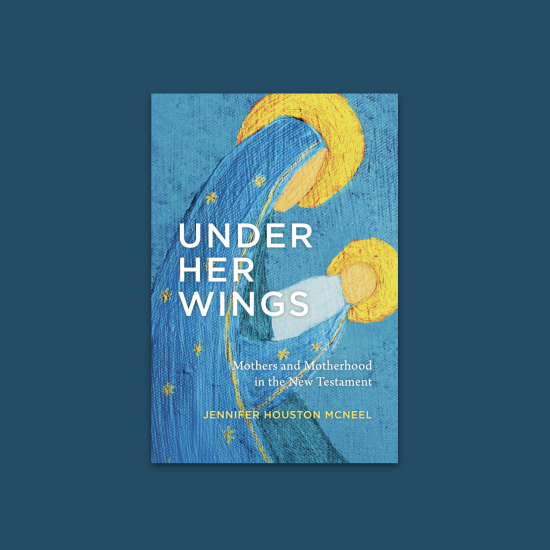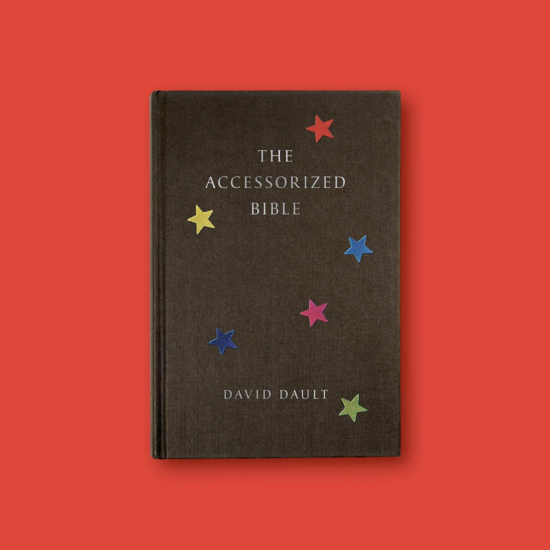

IF GOD STILL BREATHES, WHY CAN’T I? Black Lives Matter and Biblical Authority. By Angela N. Parker. Foreword by Lisa Sharon Harper. Grand Rapids, MI: Wm. B. Eerdmans Publishing Company, 2021. Xvi + 117 pages.
As Eric Garner was dying as a result of a chokehold put on him by a New York City police officer — in an arrest attempt over selling cigarettes outside a package — he cried out “I Can’t Breathe.” That phrase would become the mantra of the Black Lives Matter movement, especially after the death of George Floyd died when a Minneapolis police officer placed his knee on Floyd’s throat until he could no longer breathe. This phrase stands as a response to a series of deaths of African Americans at the hands of police across the country. It stands as a reminder that racism not only still resides in this country but appears to be on the rise. Oddly enough it appears to be entrenched within the academic world as well, though its presence is often more subtle. Nevertheless, we’re seeing a growing number of African American scholars and other scholars of color start to speak out.
One biblical scholar who has chosen to speak to this concern is Angela Parker, an assistant professor of New Testament and Greek at Mercer University’s McAfee School of Theology and an ordained Baptist minister. Parker, who is an African American woman with evangelical/Baptist roots who writes from a Womanist perspective, has provocatively titled her book on biblical authority If God Still Breathes, Why Can’t I? In taking a look at how the Bible is understood and used as a religious authority, she connects this conversation with the message of the Black Lives Matters movement. She addresses the question of how the Bible has been interpreted and used in ways that have negatively impacted people of color like her. Her premise is that the doctrines of biblical inerrancy and infallibility, which are prominent within evangelicalism and fundamentalism, serve as tools of White supremacy.
Parker’s starting point as a Womanist scholar is a reminder that theology is ultimately contextual, whether we recognize it or not. That’s the problem, too often in academic circles it is presumed that the normative way of doing theology is the one defined by White males. In this book, she notes that in her training in mainstream seminaries like Duke, she discovered that whether consciously or not, students like her were being formed to be White male scholars. So, she writes this book to call our attention to this reality. The title of the book is a call to recognize that the insistence on inerrancy and infallibility ends up suffocating persons of color, especially women of color. Thus, she and others cannot breathe.
Even as Parker’s book is written contextually, so is this review. I am a White male who has been trained to be a White male scholar, and I didn’t know the difference until recently. As I look back over my own theological education, which includes my undergraduate degree in bible and ministry, as well as my M.Div., and Ph.D. which I received from one of the most prestigious seminaries in the country, the only classes I took from a person of color were my undergraduate classes in Old Testament, which were taught by a Korean immigrant. Everybody else I studied with was White. It’s not that I had that many other options, even during seminary. It’s not that I chose White professors. That’s who was available to me. Things have changed on campus, but I sense that, for the most part, White males still predominate in faculty positions. I highly value my education and my teachers, who for the most part were intent on giving me the tools I needed to read Scripture and theology with a critical and open mind. At the same time, I’m sure I missed out on important perspectives.
Even though I do not embrace either inerrancy or infallibility, I do affirm the premise that Scripture remains normative for the Christian faith, even if it must be read critically. That’s where Parker begins the book. She asks the question about our relationship with the biblical text. There are those in her classes, she reports, that when she asks the question of their relationship with the text, report their hostility to the Bible because of the way it has been used to oppress women, people of color, and LGBTQ folks. There are also those who embrace the Bible as inerrant and infallible and believe that what they read there is unquestioned truth, so to ask challenging questions of Scripture is abhorrent. These students are often unaccustomed to wrestling with the way the Bible has been used against people like Parker.
With these two poles in mind, Parker raises the question of the relationship between White supremacist authoritarianism and biblical authority. She suggests that too often these are linked in a way that makes it difficult for some to “experience God’s breath in the biblical text.” She writes in the hope that the reader can experience that breath as they read Scripture outside the confines of White supremacist authoritarianism. To do so, however, requires deconstructing how scripture is often read and understood. Like me, Parker wants to embrace the authority of Scripture, but she wants to do it without the shackles of White supremacy. As she shares in the book, the journey to get there can be bracing for some.
From this starting point, the journey with Professor Parker begins. She writes in Chapter 1 about her encounter with theological education in which she was trained to be a White male biblical scholar. The chapter is titled “Stifled Breathing,” and it relates her own experience training to be a biblical scholar, including time spent at Duke. While she respects those who taught her, she challenges the way they approached the text without acknowledging their context. However, in the course of her studies to be a biblical scholar, she found her voice as a Womanist scholar of the Bible. That realization raised questions for her about the Bible, its interpretation, and its use.
Having told her own story of finding the freedom to read scripture anew as a Womanist scholar, Parker moves on to interrogating the doctrines of inerrancy and infallibility. In doing this she uncovers how these doctrines are used to support White supremacy. She notes that in her reading of Scripture, she regards “authority as a ‘living’ and ‘breathing’ conversation.” (p. 27). This is then a call to move away from bibliolatry to a form of biblical authority that allows room to breathe. The concern here is the use of the Bible to control others, including peoples’ bodies. That is, she wants us to recognize how the way Scripture is read and used can be used to set boundaries as to who is in and who is out. While this takes place, those who use the doctrines do so to protect their position in the academy, the church, and society at large. That reality is playing out right now in the political realm, which often is powered by its religious supporters. Consider that Donald Trump’s most loyal followers tend to be White evangelicals.
The chapter on inerrancy and infallibility is followed by one that speaks to the problems of gaslighting and microaggression. That is, she speaks to how inerrancy and infallibility are used by White males to force women and minoritized persons to wear the masks of White supremacy. That is, she addresses the way Scripture is used to force non-Whites to fit themselves into traditional White (European-American) readings of Scripture. Thus, she writes this brief book, much as Esau McCaullley did with Reading While Black, to help black and minoritized persons reclaim their right to interpret the Bible in a way that reflects their own experience. This involves pushing back against attempts to make persons of color, especially women, doubt their interpretations of scripture.
Having addressed these challenges to her own engagement with the text as a Womanist scholar, Parker speaks of the move from stifled breath to full-throated faith. Here she speaks of faith formation, in conversation with Paul’s Galatian letter. She speaks of walking in the faith of Jesus as opposed to simply having faith in Jesus. The goal here is to make it home (safely). This chapter speaks to how Paul is traditionally interpreted and offers an alternative reading that is liberating. In doing so she addresses how Paul defines himself as a slave and how that language is interpreted. This is important as Paul has been used to reinforce slavery. The same is true for the way Paul uses feminine imagery to describe himself. Again, that needs to be reinterpreted in light of contemporary concerns. The goal here is to experience a mature faith that is freed from White supremacy.
Parker concludes with a conversation about “breathing Womanist air.” In essence, this is an invitation not simply to women or people of color but to White males as well to hear anew scripture in a way that is not defined by White supremacy or White privilege. She offers a pathway to a new way of reading scripture using the acronym AIR as her guide. That acronym stands for the words: Accept. Interrogate. Read Womanists! That last piece is important as Parker wants us to read Womanist interpretations of Scripture. The first letter, acceptance, is a call to remember that we as the reader do not know everything about the text. So, we should accept the fact that inerrancy and infallibility have been used as tools of complementarianism and slavery. Finally, the middle letter, “I,” stands for interrogation. What she means by that is we should interrogate our identities. When we do this, we are ready to read Womanist Scholars of the Bible.
Angela Parker’s If God Still Breathers, Why Can’t I? is a very short book. Nevertheless, it is designed to provoke a difficult conversation within the church. It challenges forms of biblical authority that resist questioning the text of Scripture. It is also a reminder that our contexts matter. Therefore, this book might be brief and even accessible, but that doesn’t mean it’s an easy read, especially if you’re a White male trained to be a White male religious scholar. As you may surmise the book did make me feel uncomfortable at points. That doesn’t mean I’ve come to hate myself or reject my academic training, but it does open my eyes to new possibilities. I hope it can do the same for others. May it be a word of encouragement to scholars of color and an eye-opener for White males like me!
This review originally appeared on BobCornwall.com.
Robert D. Cornwall is an ordained minister in the Christian Church (Disciples of Christ). Now retired from his ministry at Central Woodward Christian Church (Disciples of Christ) of Troy, Michigan, he serves as Minister-at-Large in Troy. He holds a Ph.D. in Historical Theology from Fuller Theological Seminary and is the author of numerous books including his latest “Second Thoughts about the Second Coming: Understanding the End Times, Our Future, and Christian Hope” coauthored with Ronald J. Allen. His blog Ponderings on a Faith Journey can be found at www.bobcornwall.com.






